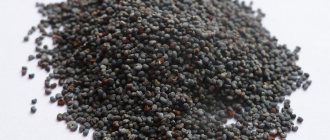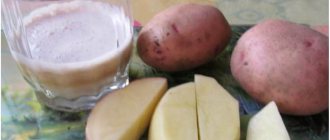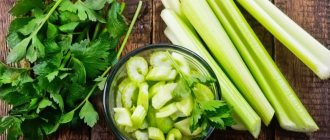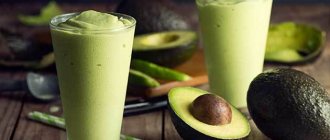Today, chewing gum has become a habit, otherwise a bad one. Some people keep a small piece of latex in their mouth constantly, although, according to dentists' recommendations, it is enough to spend 10 minutes after eating for this activity. Such short chewing helps cleanse the interdental spaces from food debris. Again, if you have the opportunity to fully brush your teeth, it is better to do just that. Chewing gum is still a last resort option.
Many women, having learned about their interesting situation, are in no hurry to give up chewing gum. At the same time, expectant mothers are concerned about the question: is it safe for the fetus? Let's try to figure out whether pregnant women can chew chewing gum during toxicosis or just like that.
Should you believe the advertising?
Needless to say, it’s hard to imagine everyday life without packing these little white rectangles. With the onset of pregnancy, a woman is forced to change many habits or give them up altogether. As a rule, alcohol and cigarettes are completely excluded. If the expectant mother used to smoke, in the name of the baby’s health she will not allow herself a single puff. But if no one doubts the ban on these substances, then mint gum seems like a harmless and even useful product.
Television advertising caused a lot of confusion. We all remember the promises of white-toothed dentists: chew gum and you will be happy! And then there was a convincing list of the beneficial properties of the advertised products: it will freshen your breath, protect against caries, and make your smile snow-white. Many people still believe these marketing promises. And yet, the answer to the question of whether chewing gum can be used during pregnancy is not so clear-cut. There is conflicting information on the Internet. Some doctors categorically prohibit, others give relief. However, there are proven facts that speak in favor of giving up chewing gum. But before we talk about them, it’s worth looking at the composition of this product.
Video: the benefits and harms of chewing gum
Chewing gum promotes the production of gastric juice. It irritates the walls of the stomach, as the body perceives chewing gum as food. In this case, there is a high probability of developing gastritis and ulcers. Therefore, experts disagree on whether chewing gum is harmful or beneficial.
What is included in the chewing gum:
- The basis of any chewing gum is latex. It is important to remember that its effects have not been tested on pregnant women;
- flavorings;
- dyes. Some of them cannot be eaten;
- sweeteners such as sugar and sugar substitutes;
- many types contain aspartame, which causes headaches and nausea.
Since studies have not been conducted on pregnant women, it is recommended to limit the use of gum for the entire period of pregnancy. It is better to use natural substitutes consisting of resins.
Why pregnant women should not chew gum:
- First of all, pregnant women should not use chewing gum, because it affects the health of their teeth. Its constant use destroys tooth enamel and negatively affects fillings;
- chewing in a pregnant woman can cause nausea and vomiting;
- high sugar content increases blood glucose levels;
- dyes and flavors can provoke allergic reactions;
- Any chewing stimulates the production of gastric juice. It is strictly forbidden to consume bubble gum on an empty stomach. This often causes the development of gastritis and ulcers.
During the gestation period, all the necessary vitamins and minerals from the mother's body pass through the umbilical cord to the baby. They are necessary for the proper development of the bone skeleton and organs of the unborn baby.
Pregnant women already notice from the first trimester that their teeth become more fragile. Chewing gum, causing increased salivation, accelerates the process of destruction of tooth enamel due to the sugar content in it.
There is also a high probability of the filling falling out, and as a consequence subsequent treatment. We must not forget that the use of anesthesia is contraindicated in the first trimester. That is why pregnant women are not recommended to chew gum.
If a pregnant woman cannot live without chewing gum, then it is better to replace it with natural cedar gum or chewing gum. It consists of natural ingredients, is not harmful to health and has a pleasant taste.
There are many myths and legends about chewing gum, for example:
- scientists have found that chewing gum helps the process of losing weight, as it reduces appetite;
- There is active debate about whether chewing gum affects brain activity. Many believe that its use improves memory and helps concentrate;
- if you chew gum for no more than 5-7 minutes, a light massage of the gums occurs, which has a beneficial effect on dental health;
- Chewing gum will never replace brushing your teeth with toothpaste and brush;
- the product has a destructive effect on fillings and crowns and promotes the formation of interdental caries.
Glutamate and aspartame, according to scientific research, have a negative effect on pregnancy, as they contribute to the destruction of nerve cells, especially in late pregnancy.
Every expectant mother should understand that chewing gum will do more harm to the body than good. The only advantage of such a product is that it freshens breath in a fairly short time. In this case, it is better for the expectant mother to replace the gum with mint tea or brush her teeth with toothpaste.
The pros and cons of chewing gum should help the expectant mother decide whether it is worth chewing. One chewing gum will not harm the body, but its regular use will negatively affect the female body and the development of the fetus.
Needless to say, it’s hard to imagine everyday life without packing these little white rectangles. With the onset of pregnancy, a woman is forced to change many habits or give them up altogether. As a rule, alcohol and cigarettes are completely excluded. If the expectant mother used to smoke, in the name of the baby’s health she will not allow herself a single puff. But if no one doubts the ban on these substances, then mint gum seems like a harmless and even useful product.
What is chewing gum made of?
The base of the elastic is latex, the same material from which many other products are made. It is worth keeping in mind that there is no evidence of a scientifically studied effect of it on the body of expectant mothers. Artificial flavors may cause an allergic reaction. Chewing gum manufacturers often add non-food colorings, sugar and sugar substitutes, in particular E951 (aspartame). This substance contains phenylalanine, which can negatively affect the hormonal levels of the expectant mother and baby. In addition, E951 in some cases causes migraines and nausea. After you have sorted out the composition, you need to ask the question: is it possible for pregnant women to chew gum, is it worth doing it at all?
Why doctors are prejudiced against chewing gum
- It contains a lot of sugar, which is known to cause elevated blood glucose levels.
- Various additives can cause allergic reactions.
- Sugar substitutes sometimes cause pain in the intestines and stomach, and provoke diarrhea.
- Liquorice, which is part of chewing gum, increases blood pressure and promotes rapid leaching of potassium from the body.
- Mouth ulcers and inflammation on the outer corners of the mouth are caused by oils and flavorings in the product.
Can pregnant women take ascorbic acid?
Is there any benefit?
After familiarizing yourself with the composition of chewing gum, it becomes clear that, in general, there is nothing useful in it. However, this is not quite true. It is worth considering in more detail the question of whether pregnant women can chew Orbit gum or any other gum. There are still some benefits, and they are associated with the psychological effect of chewing. This to some extent helps to calm down when nervous. Some people are accustomed to eating away stress with high-calorie dishes. They can be advised to chew gum for ten to fifteen minutes in an anxious state. The psychological effect will be the same, but without overeating.
In addition, toffee actually freshens breath for a short time and helps the stomach produce gastric juice. The chewing time limit is a maximum of fifteen minutes, until the harmful substances have time to take full effect.
Chewing gum: benefit or harm. Let's look at it in detail
No one will give you a simple answer to this question. Chewing gum is not a medicine and long-term, expensive studies have not been conducted on the effects of gum on the body of a nursing woman and a newborn baby.
The first thing that comes to mind is the danger of an allergic reaction.
Try to understand yourself. Why do you want to chew gum?
- Do you want to remove bad breath? Then perhaps you should visit a specialist and check the health of the gastrointestinal tract;
- Do you like to chew, does it help you concentrate or, on the contrary, distract you? Try nibbling on an apple or carrot;
- Do you feel hungry all the time and want to deceive your body in this way? Balance your diet. Eat more high-calorie foods. And in order not to be mistaken and to be sure that the food you eat is healthy and will not harm the baby, watch our course Nutrition for a nursing mother without harm to the child{amp}gt;{amp}gt;{amp}gt;
Possible consequences of chewing gum during pregnancy
Negative effect on the condition of teeth. Frequent use of chewing gum leaches calcium from tooth enamel, contrary to advertising claims, and it quickly deteriorates. This occurs due to a disruption of the acidic environment in the mouth. Tooth enamel is also destroyed by frequent intense chewing movements. The teeth of pregnant women are very vulnerable, because a large amount of building materials is used to form the child’s bone skeleton. Calcium is one of the main elements, and the fetus “eats” it from the mother’s teeth. Chewing gum only speeds up this process. Chewing gum creates a vacuum between itself and the tooth, which pulls out the fillings. Dentists have had to deal with a lot of work because of fillings that have popped out as a result of chewing gum.
Artificial coloring and flavoring substances that are stuffed into latex products are strong allergens. Chewing on an empty stomach can cause gastritis or ulcers. This is due to the corrosive effect of gastric juice on the walls of the esophagus. Sugar in bubble gum increases blood glucose levels. Monosodium glutamate (flavor enhancer) has a detrimental effect on the nervous system of the embryo.
Precautionary measures
- But still, you should not use the gum for more than 10 minutes, even if it pleasantly massages the gums. It has been proven in practice that chewing for too long begins to cause a reverse reaction in the body, then vomiting and nausea appear.
- If a woman had problems with the gastrointestinal tract even before conception, then these problems should not be aggravated during pregnancy.
- Pregnant women should take into account that while chewing, a signal is sent to the brain that it is time to process food. This means that gastric juice begins to be actively secreted. And since this signal is false, the juice begins to aggressively affect the walls of the stomach. As a result, diseases such as ulcers and gastritis appear. Therefore, while chewing gum, the stomach should not be empty.
What to do if you really want to chew?
Not every expectant mother has the willpower to instantly change her lifestyle. Many people use the psychological calming effect of chewing, which was discussed earlier in the article. Some people still use mint gum to freshen their breath. In this case, you should think about minimizing the risk of health problems. To begin with, you should make it a rule that you should not keep the gum in your mouth for more than ten to fifteen minutes. This time is enough to clear the mouth from pieces of food.
Expectant mothers can be recommended to reduce the frequency of use of rubber plates to 1-2 pieces per day. Chew gum only after eating. The gastric juice produced during this consumption will facilitate the digestion of food. If you violate this rule systematically, then there is a risk of developing or worsening stomach problems.
What to do when you really want to chew?
What about those girls who used chewing gum every day after meals? Unfortunately, you will have to resort to willpower for the sake of the baby’s health! But if you really want to, you can reduce the chewing time to 3 – 5 minutes. This time is enough to lightly clean your teeth without harming your body.
You can buy analogues of chewing gum, for example, Zabrus is a honeycomb lid. If you chew this thing, mommy’s body will receive a lot of useful microelements and vitamins. You can also use coffee, it will remove bad breath. Parsley and mint leaves will stop a rumbling stomach. In addition to all of the above, it would be a good idea to use marmalade containing water, fresh fruit and sugar as a substitute.
In reality, chewing gum is not so bad, it helps produce more digestive juice. This makes the stomach work better. It also makes a person calmer and helps to collect his thoughts.
Can pregnant women chew gum to relieve nausea or is it better to replace it?
Chewing gum can be replaced with natural products such as honeycomb or tree tar. These products are not only harmless, they are a storehouse of useful microelements and vitamins. To give freshness to your breath, natural coffee beans are suitable. It is enough to chew 1-2 grains. Regular parsley is an excellent breath freshener after eating. A sprig of this greenery will destroy bacteria in the mouth and restore the acid-base balance. For a pleasant effect of massaging the gums, carrots and apples are suitable. These natural massagers are faithful companions to healthy teeth.
A woman at any stage of pregnancy is responsible for her health and the health of her unborn baby. The author of the article highlighted the possible negative consequences of chewing gum use by expectant mothers. Therefore, it is better not to cause additional harm to two living organisms. If it is not possible to completely abandon the use of bubble gum, then it is worth at least minimizing the negative consequences. The safest solution is to replace the gum with other refreshing products or regular teeth brushing.
Everyone must decide for themselves whether pregnant women can chew gum. The reviews are completely opposite. But it’s worth thinking about the health of your unborn baby and eliminating all low-quality products.
Chewing gum during pregnancy
Can you chew gum during pregnancy?
Let's look at the composition of chewing gum. More precisely, those mysterious numbers that are there, next to the letter E.
- Aspartame – E951 – is an artificial element, a sweetener that replaces sugar in chewing gum. In essence, it is truly absolutely harmless, but the trouble is that in the human body, under the influence of metabolism, it breaks down into the amino acid phenylalanine and methanol. Of course, the methanol content after using one plate is completely insignificant and, moreover, methanol is synthesized by the human body itself - it is, so to speak, a by-product of its vital activity. But is it worth increasing the amount of methanol in your body during pregnancy? Decide for yourself.
- Phenylanine, the second component of aspartame, also raises big questions. There is an opinion that, although it does not pass directly through the placenta, it negatively affects the hormonal background of a pregnant woman, and therefore the hormonal background of the fetus, because they are completely interconnected. Although, for the sake of fairness, it should be noted that no serious research has been conducted on this topic yet, and there is no confirmed data on this matter. For now there are only assumptions and hypotheses. But is your future child an object for such experiments?
In general, Belarusian doctors have already written on many chewing gums that they are not recommended for use during pregnancy. They believe that pregnant women should definitely not chew gum. Perhaps you should heed their advice too?
It is believed that the chewing reflex is the most ancient and necessary for life. Having lost the ability to chew, a person faces serious trials due to nutritional problems.
What chewing gums can you chew while dieting?
Almost all diets advise monitoring the amount of calories you consume. Many people who are losing weight wonder whether chewing gum can be used on a specific diet. Let's take a closer look at the types of diets and their rules.
Drinking
The diet has proven itself not only as one of the most effective, but also as a controversial method of losing weight. The diet aims not only to lose weight, but also to cleanse the body of toxins, and also reduce the size of the stomach.
The drinking diet includes a ban on solid food for a whole month. With the right approach, severe hunger should not interfere, since the number of servings and the amount of calories required by the body are not limited by the rules.
When on a drinking diet, you need to give up chewing gum, and there is an explanation for this.
According to the method, the body is given a month to rest. And while chewing gum, the stomach automatically starts the process of digesting food. Only in this situation there is no food, which means there is nothing to digest, which is fraught with acute diseases of the digestive system.
Dukan
During a diet, chewing gum helps reduce stress and alleviates the feeling of hunger in the initial stages. When you adhere to a special diet, you often fail to take a portion of food on time, and the process of chewing gum distracts from this.
Without harm to the body, you can use chewing gum after eating or immediately before eating.
Choose a product that is low in calories and without sugar, but with a long-lasting taste. Celebrity nutritionist Pierre Dukan does not ban chewing gum and advises chewing it to temporarily reduce hunger.
Table No. 5
The diet includes all essential nutrients. The products recommended for this diet are endowed with lipotropic substances, liquid, and fiber. The consumption of dairy and fermented milk products, boiled pasta, soft-boiled eggs, and omelettes is prescribed.
You should remove from the menu products containing significant amounts of cholesterol, purines, essential oils, nitrogenous extractives, fat breakdown products formed during the frying process, and oxalic acid. Chewing gum is prohibited on this diet.
Protein
It is the most popular and effective for weight loss. The point of the diet is to consume protein foods. This reduction in body weight is considered healthier than some of the mono-diets based on daily consumption of the same type of product.
Chewing gum can be consumed, but only up to 30 minutes before or after meals.
By blood type
The diet is based on an elementary rule - a person with a certain blood type must eat what people ate at the time when this blood type appeared. Thus, nature itself tells a person which of the products is most useful for him.
Oksana Selezneva, Candidate of Medical Sciences, nutritionist, argues that it is wrong to prescribe individual nutritional recommendations, making a decision only based on a blood group test. However, you can chew gum while on a diet, but only gum that does not contain sugar.
Kefir-curd
The mono-diet takes only three days. During this time, you can get rid of 3-5 kg of excess weight. At the same time, nutritionists note that this diet is beneficial for the body, since the products contain a large amount of useful substances. You can chew gum on this diet, but without sugar.
Kremlevskaya
It is considered a low-carb diet option. The point is that all foods consumed contain a small amount of carbohydrates. Due to the fact that the intake of carbohydrates decreases, the body begins to consume its own “fuel” located in the fat folds.
It is not recommended to use chewing gum on such a diet.
Separate food
The method of separate nutrition is based on the rules of eating only compatible foods and not mixing incompatible ones into one meal. The main rule is not to mix proteins with carbohydrates. Therefore, chewing gum can be consumed only after carbohydrate foods.
Diet gum
Interesting
Tags: pregnant, chewing, chewing, can, gum
About the author: admin4ik
« Previous entry
Rules for use and alternatives to chewing gum
Despite the harm from chewing gum, if you don’t have a toothbrush at hand, its use is acceptable. And even then you should adhere to the rules for using chewing gum:
- Chew gum not in between meals, but only strictly before meals or immediately after eating food.
- You can chew gum for no more than 5 minutes. Then the additional production of saliva and gastric juice will not harm the body.
- Do not swallow chewing gum after its taste has been neutralized, and do not throw it on the street in an unsuitable place.
- Choose chewing gum with a neutral color, taste and smell.
If possible, you should replace the use of chewing gum with more natural products that cause a similar effect:
- Chewing marmalade that is easy to make at home.
- Coffee beans, which, when chewed, will permanently eliminate unpleasant odor in the mouth by destroying bacteria.
- Mint and parsley leaves can dull the feeling of hunger, make your breath fresh and saturate the body with useful vitamins.
When using chewing gum, it is important to remember that everything must be done in moderation. If possible, it is worth replacing chewing gum with more natural products that can fortify the body, neutralize bacteria and refresh the oral cavity.
Is it possible for pregnant women to chew gum, or How many E-shells are in one chewing gum
There is currently a buzz on the Internet about aspartame (E951), which is added to many well-known chewing gums instead of sugar.
Some say that phenylalanine, one of the components of aspartame, negatively affects the hormonal levels of the pregnant woman and the fetus. This means that such chewing gum is contraindicated for pregnant women. Others argue that phenylalanine is a common amino acid that the body needs, and therefore pregnant women can chew gum without any concern (unless they have phenylketonuria). In addition, phenylalanine practically does not pass through the placenta.
In general, there is no clear and unambiguous “possible” or “impossible” to answer this question. But you should still know that Belarusian doctors prescribed “not recommended for pregnant and lactating women” on Dirol chewing gum. Maybe not in vain?
It must be said that aspartame is not the only controversial component of chewing gum. In addition to it, there are a bunch of other “harmless” sweeteners, flavors and dyes, the harmfulness of which we have yet to learn about. Even latex, the basis of chewing gum, has not been fully studied.
Moreover, some chewing gum is harmful not only during pregnancy. Moreover, this is no longer speculation and empty talk, but an immutable fact. Until recently, Stimorol chewing gum contained the dye E131, which can cause cancer. Who knows, maybe in six months it will be discovered that E171 or some other “E” leads to the same consequences (by the way, E171 was already banned, but money helped it return). Such a story recently happened with E128 in the same Belarus.
Finally
Can pregnant women chew gum? Actually, no, but each woman decides for herself whether her pregnancy is a contraindication to chewing gum. And I really want to believe that now all pregnant women will be able to correctly assess the threat from chewing gum and will throw away even the packages that have already been started...
The most common chewing gum, which has been in the mouths of many people for several decades, is prohibited for pregnant women? Why on earth? And where do such strange thoughts come from?
We will not offer you simple answers, because, unfortunately, there are simply none yet. But this does not mean that there is nothing to talk about here, because there is a lot of information and something to think about. In this article we will present information that will help you understand the question of whether pregnant women can chew gum, and, perhaps, will help overcome this addiction.
Components
The basis of chewing gum is rubber, latex and other polymers of synthetic origin. They make up 60% of the volume of the finished product. No negative effects of polymers on the human body have been identified.
Glycerin (E422) – has the ability to draw water from tissues, therefore products with the addition of glycerin are contraindicated for people with kidney diseases and cardiovascular diseases. The opinion that there is very little glycerin in chewing gum is true, but do not forget that it is found in many other products: bread, candy, cookies, marshmallows, cakes and even dairy products.
Daily consumption of many glycerin-containing products can cause significant harm to health.
Butylated hydroxyanisole (E320) is an antioxidant, preservative, and antioxidant. The additive was tested on animals, and in large quantities the carcinogenic effect of the product was observed. There is no such data regarding humans. In some cases, it acts either as an anticancer agent or as a cancer-causing agent.
Citric acid (E330) – does not have a negative effect on the human body, and only large amounts that get on the mucous membranes and skin can cause a burn. But the amount of additive in chewing gum is not dangerous.
Emulsifier (E322) is produced on the basis of egg yolk. This supplement cannot cause serious harm to the body, but people with a tendency to allergic reactions should avoid products containing lecithin (E322).
Sweeteners:
- Aspartame is a sweetener that doctors recommend completely eliminating from the diet. Regular intake of aspartame causes allergies, headaches, sleep disturbances, and a depressed mental state. Aspartame cannot be washed off from the mouth with saliva, so the sweetish taste in the mouth causes a constant feeling of thirst. Phenylalanine, being a component of aspartame, disrupts chemical processes in the brain, affects the functioning of the nervous system and human hormonal levels.
- Xylitol (E697), maltitol (E695) are relatively safe food additives, but can cause gastrointestinal disorders.
- Sorbitol (E420) is an emulsifier and sweetener that is widely used in the production of products for patients with diabetes. However, it cannot be called safe for human health, since long-term use of sorbitol-containing products leads to visual impairment, diabetic retinopathy, gastrointestinal disorders and flatulence. Sorbitol is prohibited for use in the production of baby food, and in the USA it is classified as an additive hazardous to human health.
The dye most often used to give chewing gum a snow-white color is titanium dioxide (E171). On the one hand, there is no information about the dangers of this substance. But one should doubt its safety, since during experiments on rats, inhalation of titanium dioxide powder caused the development of cancer. In addition, vegetable dye (E120) is used, which is an allergen.
This is a shortened list of chewing gum components that are used in production to give it more attractive qualities: ductility, better extensibility for blowing bubbles and a unique taste. But with a complex effect on the body, they can give a number of negative manifestations.
Composition and calorie content of chewing gum
The birthplace of the first rubber chewing gum, patented in 1869 by W. Semple, is America.
However, archaeological finds indicate that a similar product was used in Ancient Greece and the Middle East, only the basis of chewing gum was not rubber, but the resin of mastic trees. Such chewing gum was sold in America, being the predecessor of modern chewing gum. Back then, small pieces of pine resin were mixed with beeswax and sold in portions. Perhaps then the harm of chewing gum was invisible to those who actively used it. Without synthetic polymers, flavor enhancers, preservatives, dyes, and flavors, it was much more harmless than its contemporary.
Over time, the composition of chewing gum ingredients has changed to meet consumer needs and to remain competitive. So, in 1880, its composition was enriched with corn syrup and peppermint, and in 1898, Dr. E. Beeman is trying to increase sales by adding pepsin powder and positioning chewing gum on the market as a remedy for diseases of the gastrointestinal tract.
However, there was no mention of the harmful effects of chewing gum. The version of its usefulness for teeth appeared in 1899 thanks to V. Canning, and remained a favorite in terms of promoting trade to this day. However, the composition of the chewing gum confirms the opposite.
There is a threat of harm to both the teeth and the gastrointestinal tract. It is possible to neutralize its negative impact only by knowing how much you can chew gum and what time of day is most suitable for this.
Back in the late 19th century, the composition of the ideal chewing gum was created:
- 60% sugar or sweeteners;
- 20% rubber;
- 1% flavored additives;
- 19% corn syrup.
The basis for modern chewing gum is made up of 4 types of components: base, flavorings, dyes, sweeteners. Depending on the taste of the chewing gum, natural or identical natural flavors are used.
One piece of chewing gum contains about 16 kcal, as you can see, the product is low-calorie.
So fears about whether you can gain weight from chewing gum are in vain.











